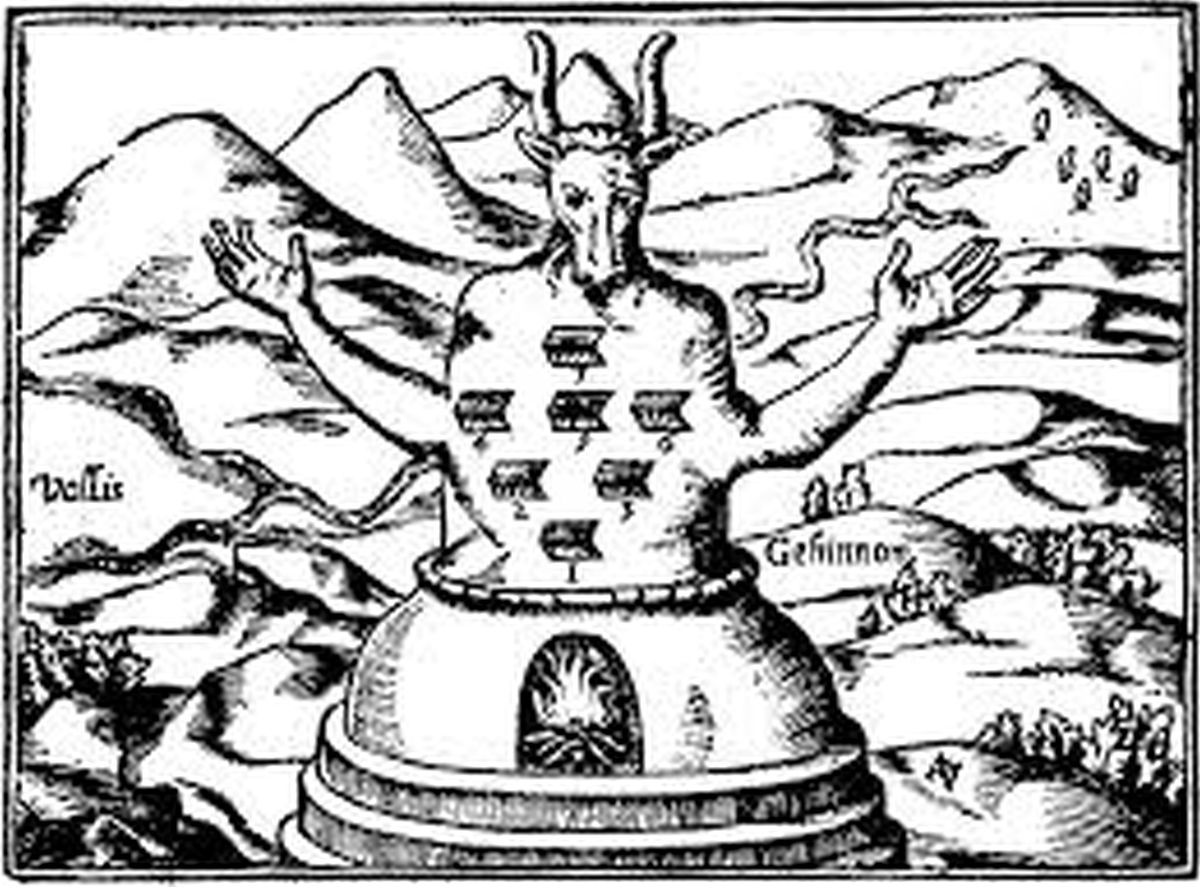 Hinnom Valley, Jerusalem, August 17 – The ancient Near-Eastern god most notoriously known for receiving child sacrifice remarked today that he remains unmoved by Palestinian tactics that often result in the death of children, stating that a display of true devotion would be marked by more courageous, direct killing of children, and not murdering them by proxy.
Hinnom Valley, Jerusalem, August 17 – The ancient Near-Eastern god most notoriously known for receiving child sacrifice remarked today that he remains unmoved by Palestinian tactics that often result in the death of children, stating that a display of true devotion would be marked by more courageous, direct killing of children, and not murdering them by proxy.
Moloch, also known by similar names such as Molech, was worshiped by societies across North Africa and the Levant in Biblical times, and was known for the sacrificial ritual involving, among other offerings, the devotee’s child, often a firstborn son. The child and several other items – animals and grain, for example – would be placed in a special structure that would be set alight, in the hopes that the burnt offering would give Moloch pleasure, or at least appeasement, and the god would then grant the worshiper prosperity. In contrast, says the deity, Hamas engineers the death of children by simply placing them where they believe Israel will strike, a cowardly sort of sacrifice that does not find favor in Moloch’s eyes.
“If they were real men they would offer me their own children by their own hand,” seethed the ancient god. “But they apparently wish to reap the benefits of child sacrifice without the necessary display of fealty to me, which displeases me.” Moloch said he was now considering sending the prosperity and success to Hamas’s enemies instead.
Moloch would rather not have to resort to such measures, since the enemies in question are the people of Israel, with whom the god has a complex relationship. While some segments of ancient society in Israel were die-hard Moloch worshipers, eventually the people’s political and spiritual leadership eradicated the practice, which involved a priest beating loud drums to drown out the cries of the children being burned. As a result of the brutality of the practice, the name of one of the main sites for the Molech ritual, the Children of Hinnom Valley – Gei Ben Hinnom – lent its name as a reference to Hell in later Israelite literature. Such an unequivocally negative view of Moloch gives the deity pause in considering whether to bestow what he can provide upon the descendants of those who eliminated Moloch-worship.
“Hamas is much closer, ideologically speaking, to the ancient devotees of Moloch than perhaps any other group,” says Ov Yidoni, who studies ancient Mideast cult practices. “They themselves aver that they worship death while the Zionist worship life – you can’t find a much clearer statement of dovetailing philosophy with the Ammonite god of the underworld.”
“It’s weird how those cults don’t tend to stay on history’s stage for very long,” he mused.




